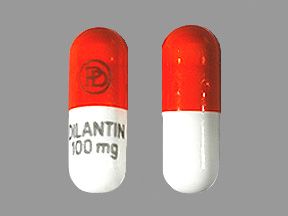Top Class Actions’s website and social media posts use affiliate links. If you make a purchase using such links, we may receive a commission, but it will not result in any additional charges to you. Please review our Affiliate Link Disclosure for more information.

Dilantin was first approved by the U.S. Food and Drug Administration (FDA) in 1936, and has been used to treat epilepsy and control seizures. The drug is most commonly prescribed to treat:
- Tonic-Clonic/Grand Mal Seizures
- Partial Seizures
- Absence seizures
- Seizures that can occur during neurosurgery
- Emergency intervention to prevent seizures after head injuries
Dilantin essentially works by slowing down the impulses in the brain to allow easier response and adjustment. Pfizer Inc. is responsible for manufacturing and distributing this drug, and has proudly boasted the drug’s history of efficiency and success.
However, like many drug companies, Pfizer has allegedly failed to adequately mention the deadly Dilantin side effects that can occur from taking the medication. One of these symptoms is Stevens Johnson Syndrome, a severe allergic skin reaction.
While an earlier review found a small number of cases of Stevens Johnson Syndrome and related Toxic Epidermal Necrolysis caused by Dilantin, recent studies and injury reports indicate a potentially bigger problem. That has led to numerous Dilantin Stevens Johnson Syndrome lawsuits filed by victims and their families. One study analyzed Stevens Johnson Syndrome and Toxic Epidermal Necrolysis cases from 15 different states, and found that more than 20 percent were linked to Dilantin. The study found that 25 percent of the patients died due to the severe reaction.
Overview of Stevens Johnson Syndrome
Stevens Johnson Syndrome is most commonly identified by the distinctive red or purple lesions that appear on the patient’s skin. Other areas the lesions appear are include the mucous membranes, including the eyes, gums, tongue, nose, and rectum. This condition can be fatal if left untreated and can cause permanent damage.
Lesions from Stevens Johnson Syndrome cause the skin to detach and fall off, creating an injury akin to a burn. For this reason, Stevens Johnson Syndrome patients are treated in the burn unit of hospitals when diagnosed. This condition typically starts with flu symptoms, such as coughing, fever, or sneezing, before the lesions appear. Symptoms typically begin within the first two weeks of taking a medication, and it is typically seen in adults more than children.
In general, Dilantin Stevens Johnson Syndrome lawsuits are filed individually by each plaintiff and are not class actions.
Do YOU have a legal claim? Fill out the form on this page now for a free, immediate, and confidential case evaluation. The attorneys who work with Top Class Actions will contact you if you qualify to let you know if an individual lawsuit or class action lawsuit is best for you. Hurry — statutes of limitations may apply.
ATTORNEY ADVERTISING
Top Class Actions is a Proud Member of the American Bar Association
LEGAL INFORMATION IS NOT LEGAL ADVICE
Top Class Actions Legal Statement
©2008 – 2024 Top Class Actions® LLC
Various Trademarks held by their respective owners
This website is not intended for viewing or usage by European Union citizens.
Get Help – It’s Free
Help for Victims of Stevens Johnson Syndrome
If you or a loved one were diagnosed with Stevens Johnson Syndrome (SJS) or toxic epidermal necrolysis (TEN) after taking a prescribed or over-the-counter medication, you may be eligible to take legal action against the drug’s manufacturer. Filing an SJS lawsuit or class action lawsuit may help you obtain compensation for medical bills, pain and suffering, and other damages. Obtain a free and confidential review of your case by filling out the form below.
An attorney will contact you if you qualify to discuss the details of your potential case at no charge to you.
Oops! We could not locate your form.












